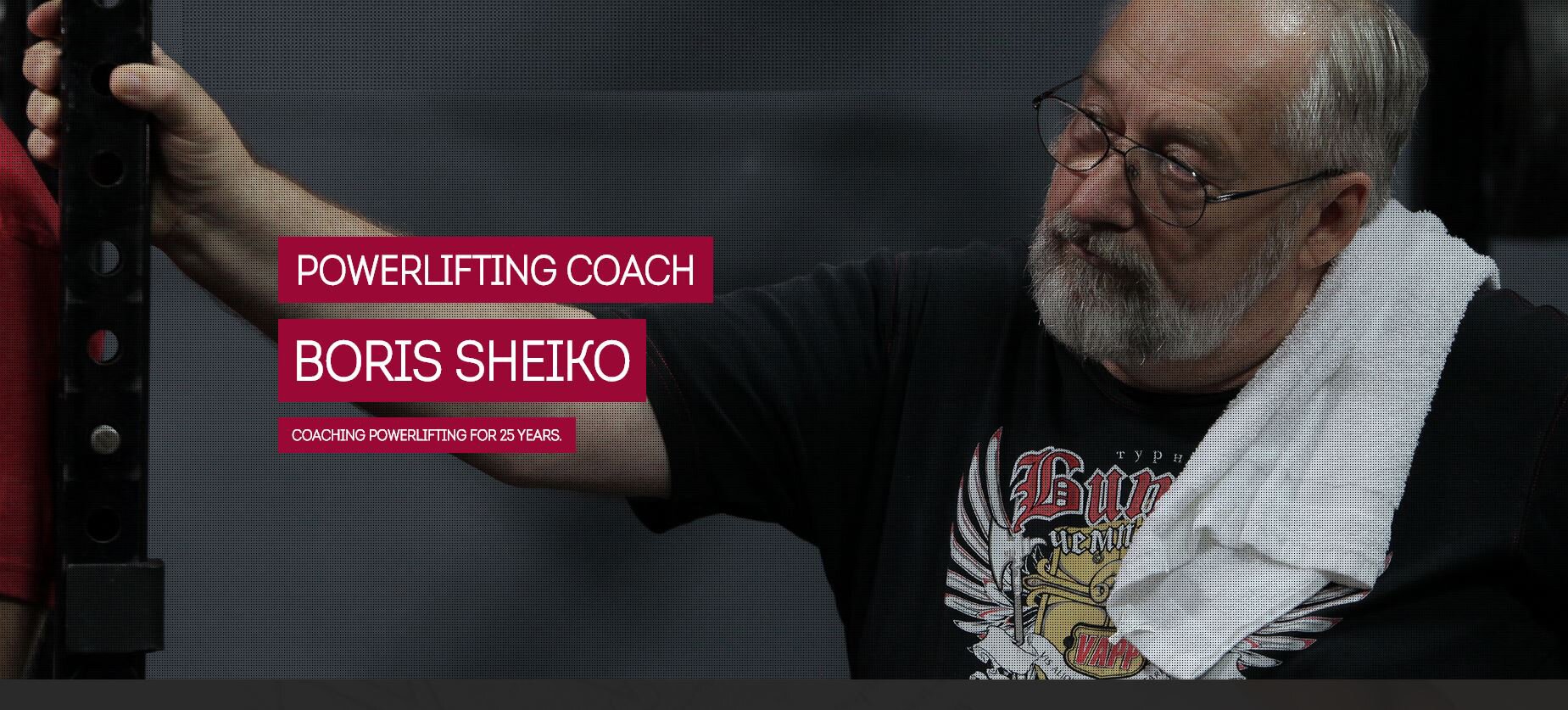
Boris Sheiko: online coaching guidelines
translated by Rostislav Kharchenko
It’s been 3 years as I’ve been working with foreign students. I write them training plans and fix technique from videos they send me. During this time I trained a lot of athletes. And all of them are at very different levels of preparedness – physical, technical and most of all mental. I try to figure out athlete’s ambitions right away, to know immediately what his goals in the sport are. Some pursue world and European titles, some want to compete on national level, for others – improvement of their PRs. All these goals require proper communication between coach and athlete. Somebody trusts their coach 100% and ready to train heavy and often, maintain regiment, and get enough sleep and food. And some doesn’t care about proper execution of the plan, go to bed late and eats badly. And it affects performance right away.
I want to tell you about the most popular problems and misconceptions that I faced during my online coaching. Hopefully it will help present and future online students.
1. Student relies too much on coach’s plans. He thinks that due to the fact that the coach is well known and experienced, he doesn’t need to put any extra effort. He forgets that no coach while writing monthly plan can predict athlete’s state of being during third and fourth weeks. That’s why I ask my students to inform me at the end of each week about how they feel, what they could or couldn’t complete during the week. It helps me to do the immediate plan correction for the following week and fix the technique. If this the case then coach and student become coauthors of better results and new victories at the competitions.
2. Very often students do not fully execute various exercises and can even entirely alter training day, without informing the coach. The workout is completed on the report, but there is no video because “my phone/camera died”. And sometimes they are even too lazy to write the report. One week passes, second and coach has no idea of athlete’s performance, what was done and what wasn’t.
3. Some students train by themselves in their garages, without anyone around. They lift off barbell by themselves during bench press, squat without spotters. It’s not a big deal, but during heavy workouts athlete can get injured. Training by themselves is mentally difficult, much easier to train with a partner.
4. Many students try to train for multiple sports simultaneously (powerlifting, fitness, strongman, track and field, football etc.). This isn’t a winning strategy. Training this way you won’t succeed at any sport.
5. A lot of times students leave after 1-2 months training by my schemes. They just wanted to try something new, later they switch to something else. This doesn’t make sense, since no program will improve your results in 1-2 months. Other students were not patient enough to train for more than 1-2 months. Every new program requires time to adapt one’s body and muscles for a new way of training. Fixing competition movements technique mistakes also requires time.
6. Some students, who could carry out one meet prep, were leaving afterwards, thinking that if they have several months’ preparation plan, they can use it for future meet preps. This isn’t right. Every single meet prep is unique and varies by a lot of different parameters.
7. Sometimes I face athletes who don’t trust me. They are constantly trying to implement their training principles, offer a bunch of bizarre and unnecessary exercises. In this case I told them that they know better than me and they should probably train by themselves or find another coach.
8. There were occasions, when a student after failing test weight starts to justify himself that he didn’t get enough sleep, worked too much, his back aching etc. I question them: “Why didn’t you write me this in your reports?” Answer is usually silence.
9. Discipline. This word alone separates those who make an improvement and those who stay where they are. If athlete is disciplined and coach is a high-level expert, then progress is inevitable.
Dozens of thousands train for powerlifting, but only a few reach to the top – the most ambitious, goal oriented, who can bear pain, heavy workouts and trust their coach.



